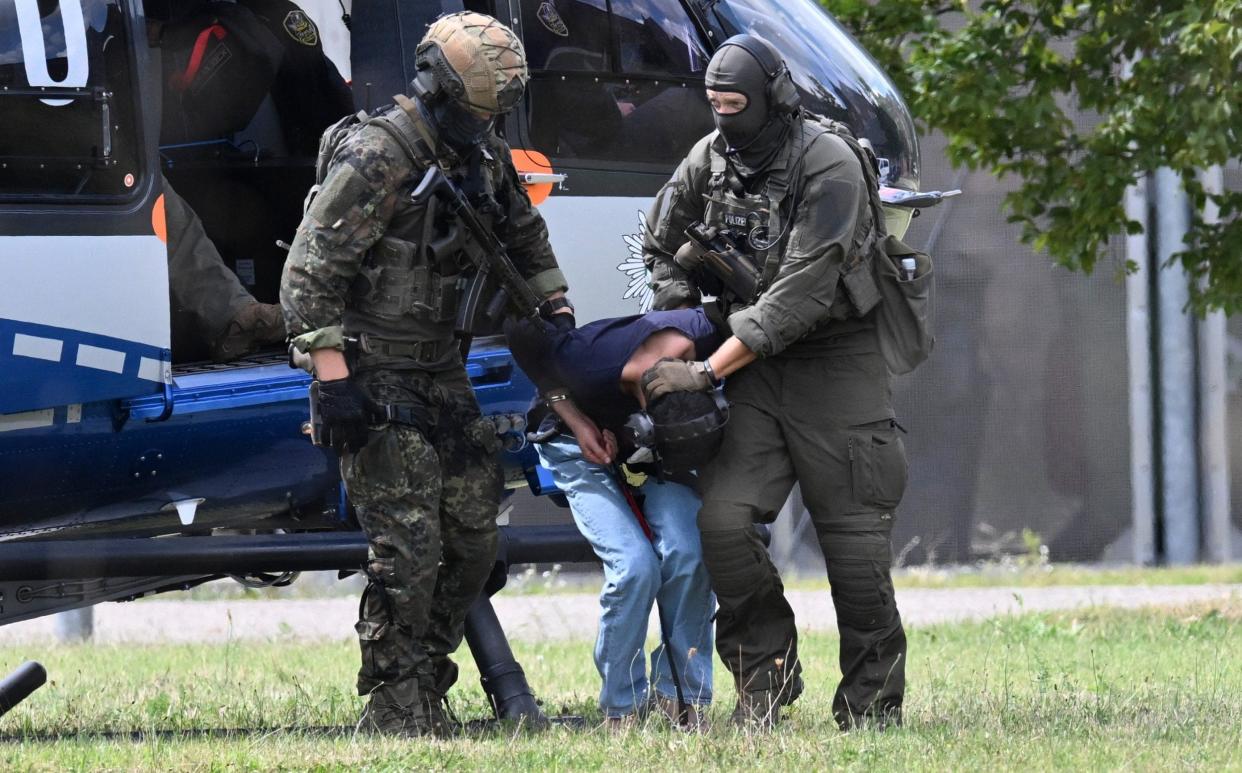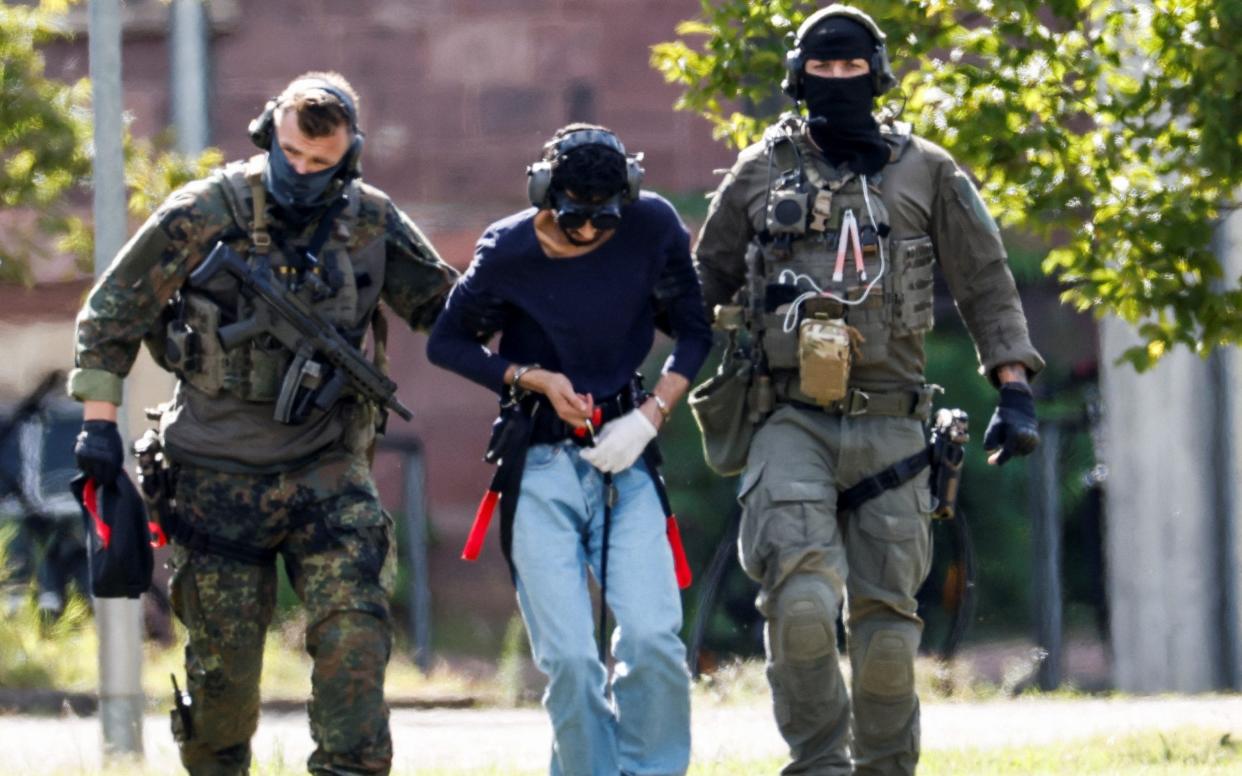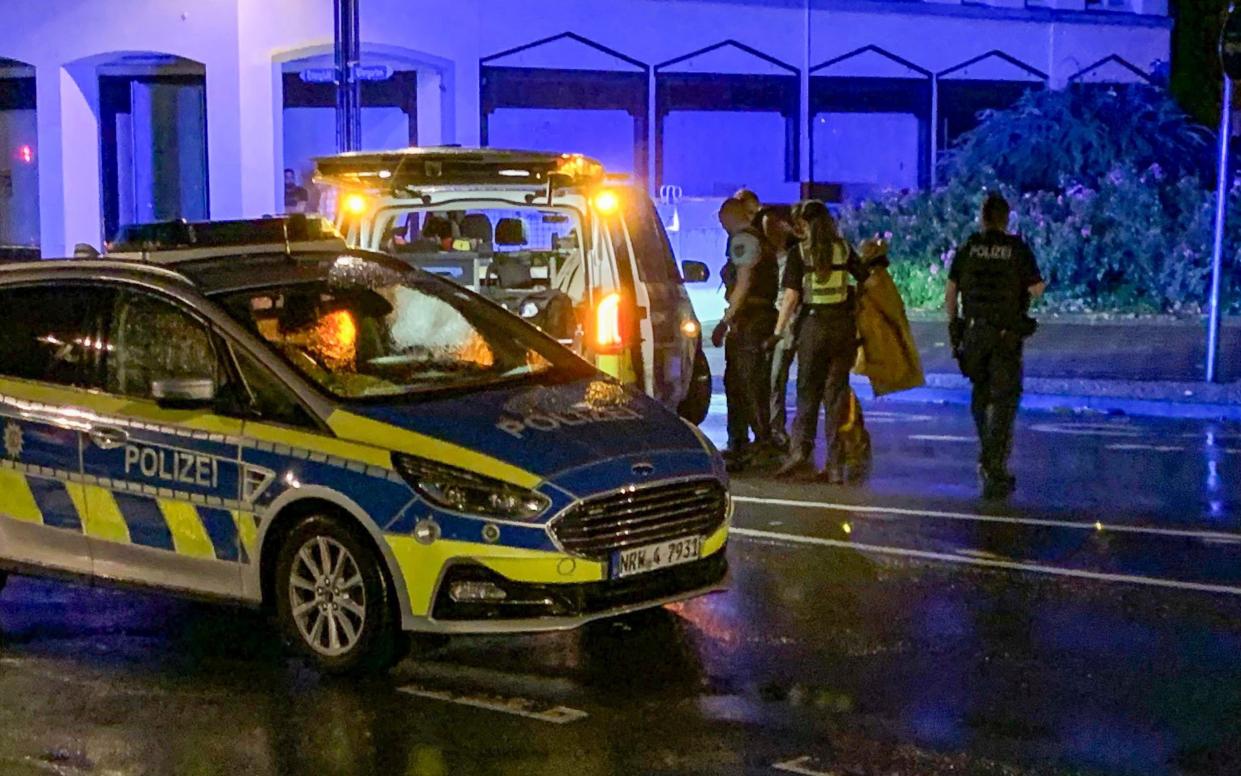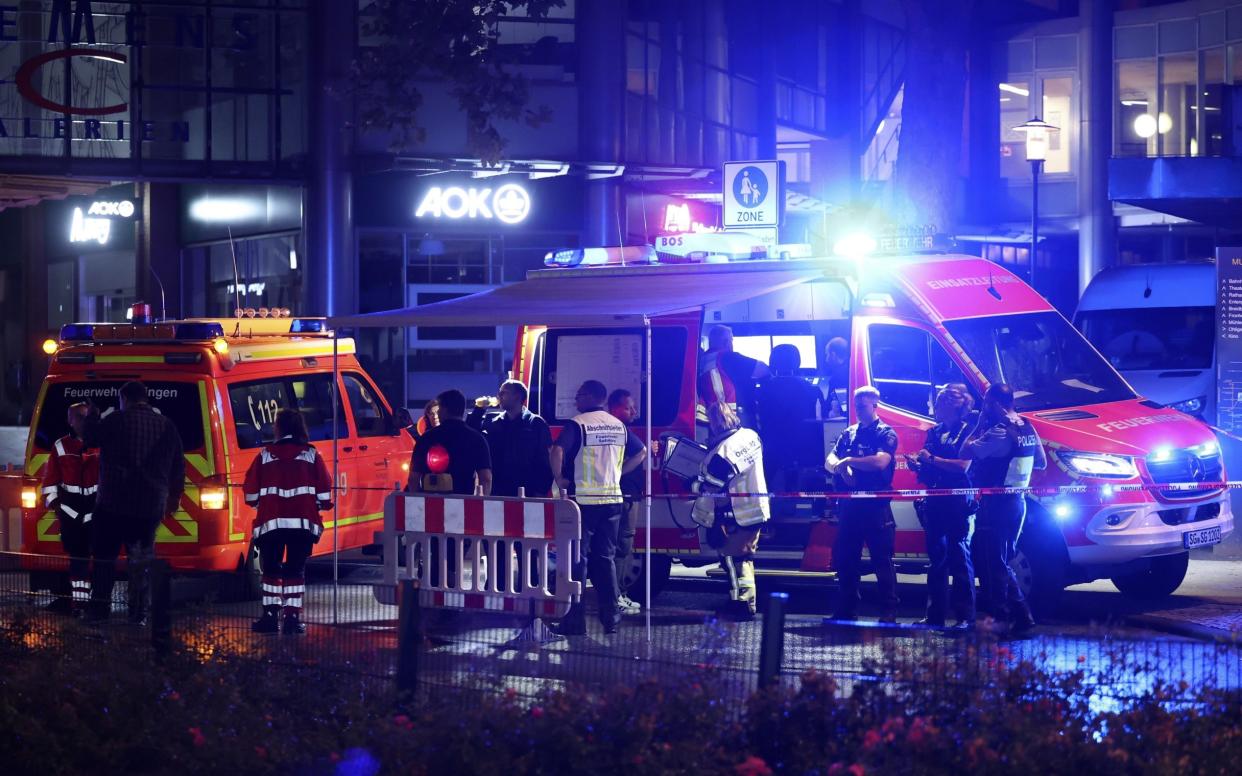Syrian accused of German festival killings allegedly told police ‘I’m the one you’re looking for’

Click here to view this content.
A Syrian asylum seeker accused of stabbing three people to death and injuring eight others at a German music festival allegedly handed himself in to police saying: “I am the one you’re looking for.”
The suspect, named as Issa al H, was said to have turned himself in after hiding in a garden for 24 hours after the attack at a Christian music festival in Solingen, near Dusseldorf.
He reportedly turned up to a police station wearing blood-stained clothes.
Al H first came to Germany in 2022 and applied for asylum in the nearby city of Bielefeld. After learning he was due to be deported to Bulgaria in 2023, he went into hiding, the Welt newspaper reported.
He was not previously suspected by the authorities of being involved in Islamic extremism.


The case has been taken over by federal prosecutors who are investigating the Syrian national for alleged murder and membership of Islamic State (IS).
Islamic State claim investigated
The terrorist group claimed responsibility for the attack “on a gathering of Christians in the city of Solingen in Germany” on messaging platform Telegram, describing the killings as being “in revenge for Muslims in Palestine and everywhere”.
Police in Dusseldorf also received a letter claiming to be from IS which a police spokesman said is being verified.
IS did not provide any evidence of being involved in the attack.
Hendrik Wüst, the state premier of North Rhine-Westphalia, told reporters in Solingen: “We don’t know much yet but we know one thing: This attack hit our country in the heart.”

Horrified witnesses alerted police shortly after 9.30pm on Friday that a man had attacked several people with a knife on Solingen’s central square, the Fronhof.
The three people killed were two men, ages 56 and 67, and a 56-year-old woman, authorities said. Police said that the attacker appeared to have deliberately aimed for his victims’ throats.
The festival, which was due to have run until Sunday, was cancelled as police looked for clues in the cordoned-off square. Instead, residents gathered to mourn the dead and injured, placing flowers and notes near the scene of the attack.
“Warum?” – “why?” – asked one sign placed amid candles and teddy bears.
Among those asking themselves the question was 62-year-old Cord Boetther from Solingen. “Why does something like this have to happen? It’s incomprehensible and it hurts,” he said.
IS declared its caliphate in large parts of Iraq and Syria about a decade ago, but now holds no control over any land and has lost many prominent leaders. The group is mostly out of global news headlines.
Weakened terror group still deadly
Still, it continues to recruit members and claim responsibility for deadly attacks around the world, including lethal operations in Iran and Russia earlier this year that killed dozens of people.
Its sleeper cells in Syria and Iraq still carry out attacks on government forces in both countries as well as US-backed Syrian fighters.
Police have arrested two more people, one of them a 36-year-old man in a home for asylum seekers just 800 metres from the scene of the crime.
It remains unclear what role, if any, the man arrested in the asylum home is alleged to have played in the attack.
Responding to the attack, Friedrich Merz, the Christian Democrat opposition leader, said asylum seekers from Syria and Afghanistan should no longer be accepted in Germany.
“It’s not the knives that are the problem, but the people who walk around with them. In the majority of cases these are refugees, and in the majority of the crimes there are Islamist motives behind them,” he wrote in a decisive break with his predecessor Angela Merkel.
He added: “Deportations can be made to Syria and Afghanistan, but we will not accept any more refugees from these countries.”
Germany debates asylum law and knife ban
In late May, a police officer was killed and five others injured by an Afghan national in an attack on an anti-Islam protest in Mannheim.
Since then Germany has been debating restrictions on immigration and asylum law as well as a ban on carrying knives, with Nancy Faeser, the interior minister, promising legislation would be delivered “soon”.
The German government had already opened up discussions with the Taliban in order to be able to deport rejected asylum seekers to Afghanistan.


